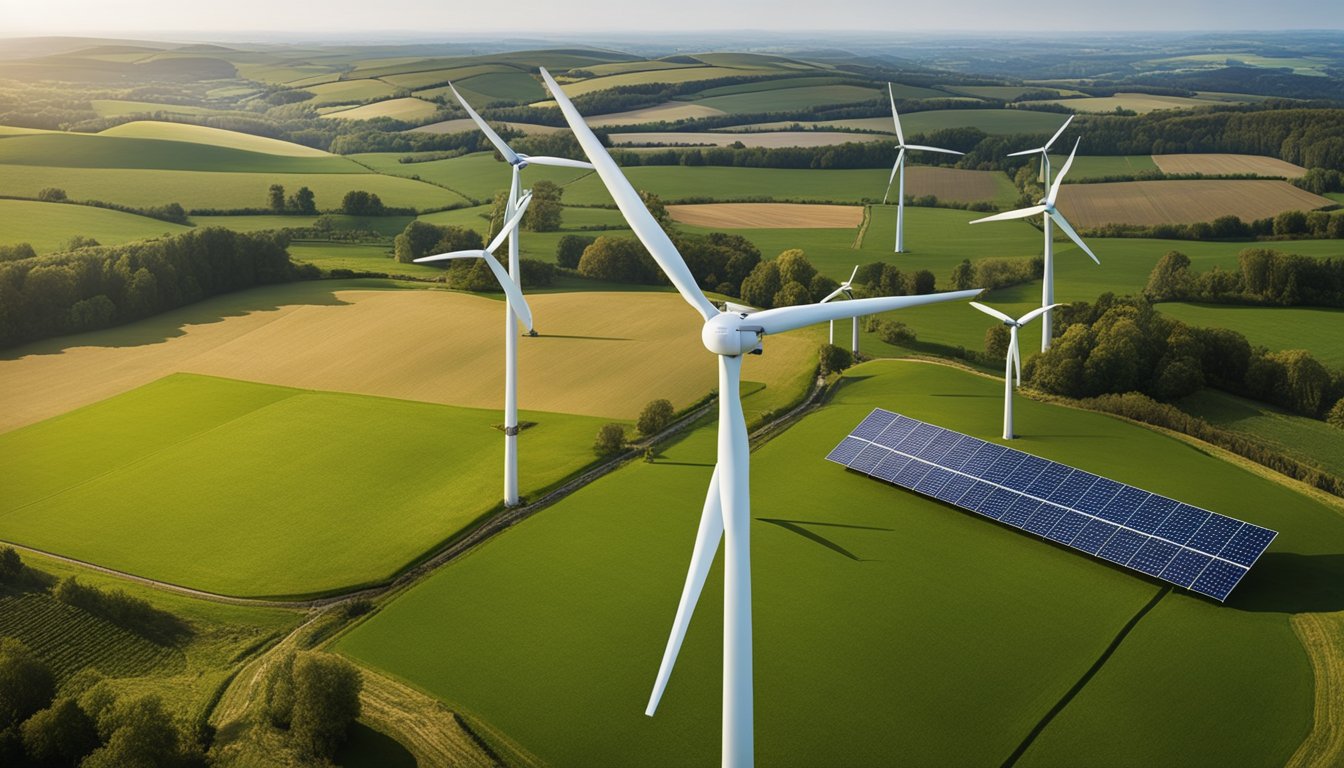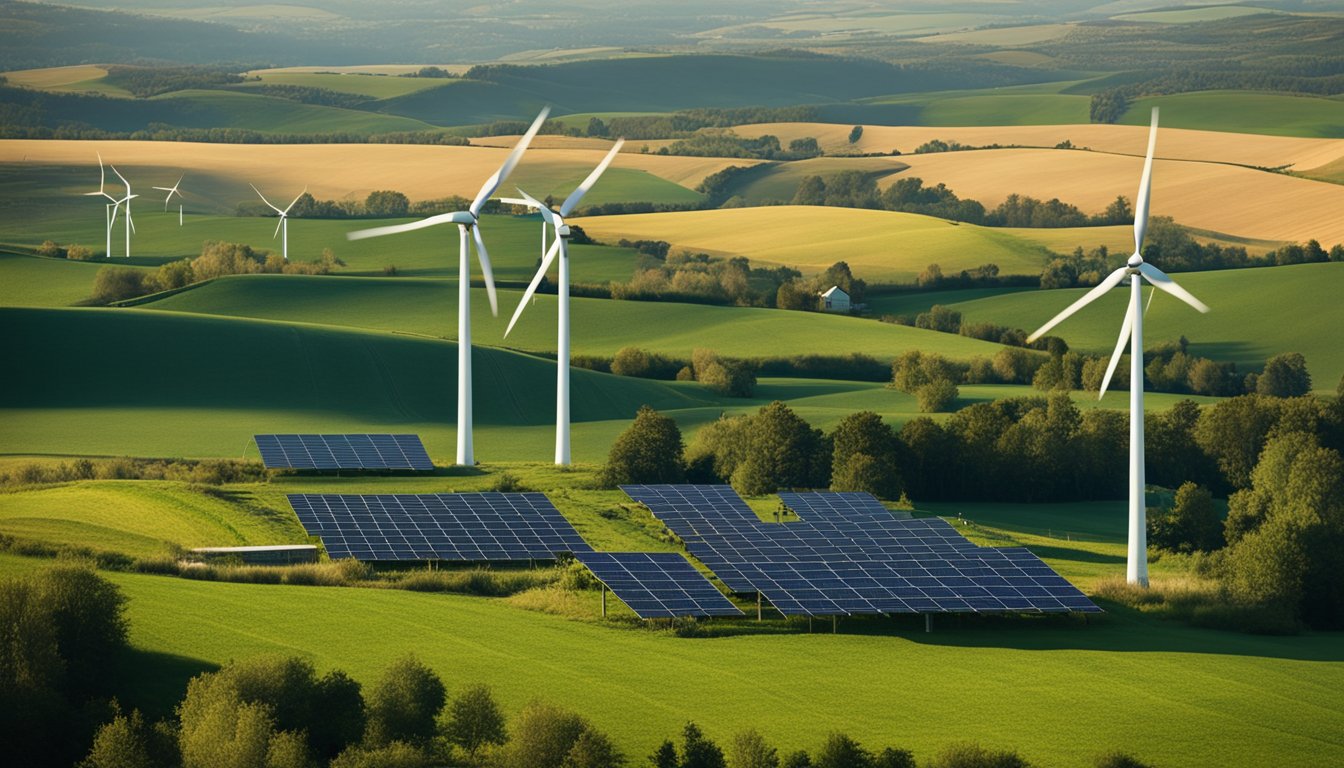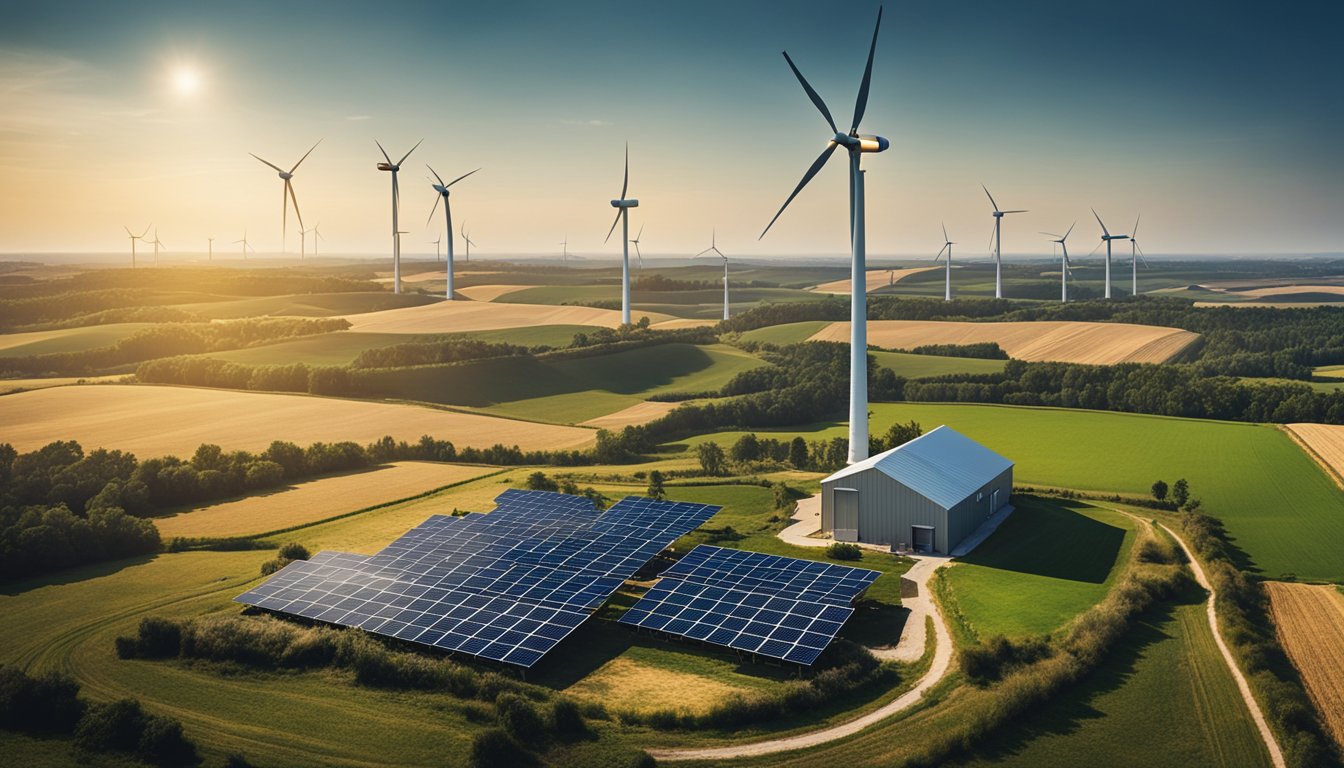Late updated: 25 Jan 2025 10:01
Written by: Oliver Bennett
Revolutionising Rural UK's Smart Energy Solutions: Transforming Village Power Systems
As we stand on the precipice of an energy revolution, rural UK homes are emerging as key players in the quest for sustainable and efficient energy solutions. The increasing accessibility and integration of smart energy technologies offer a unique opportunity for these communities to enhance their energy efficiency while reducing dependency on traditional fuels. At the heart of this transformation lies the potential for smart local energy systems to shape a sustainable future in rural areas.

Smart gadgets and innovations such as smart grids are now more than just technological trends; they are vital tools that empower rural communities. These technologies not only streamline energy usage but also improve energy reliability, thereby ensuring a more sustainable environment. By harnessing these advancements, we aim to address the traditional energy challenges faced by rural households.
The UK's strategic focus on smart energy management systems presents a framework that promises to reshape the landscape for rural communities. This framework, supported by significant research investments, paves the way for innovations that will secure energy supply and bolster rural transition into modern energy practices.
Key Takeaways
- Smart energy systems are transforming rural homes.
- Innovations enhance energy efficiency and reliability.
- Strategic frameworks support sustainable energy transitions.
The Framework for Smart Energy in Rural UK
We are witnessing a transformation in how energy is managed in rural parts of the UK. The development of smart local energy systems is crucial for enhancing resiliency, enabling sustainability, and driving economic benefits within these communities. New funding initiatives and innovative programmes are propelling this change.
Strategic Importance of Smart Local Energy Systems
Smart local energy systems provide personalised solutions tailored to the unique needs of rural areas. These systems improve efficiency by incorporating renewable energy sources and enhancing grid reliability.
Local energy solutions reduce reliance on traditional fuels by integrating technologies such as solar panels and battery storage. The systems offer flexibility, ensuring consistent energy availability and resilience against disruptions.
Rural areas benefit from such strategic developments through decreased energy costs and a strengthened infrastructure. Policymakers and energy firms must work collaboratively to foster this evolution, ensuring these solutions are sustainable and beneficial over the long term.
Investment and Funding Landscapes
Investment in smart energy systems is critical to their successful implementation. Government-backed funding programmes like the Prospering from the Energy Revolution are pivotal. These initiatives, supported by both public and private sectors, drive innovation and infrastructure growth.
Ofgem and Innovate UK play significant roles in regulating and supporting these investments. With around £104 million invested, matched by industry, prospects for rural energy transformations are promising. Moreover, the Smart Systems and Flexibility Plan guides these developments, emphasising coordinated growth across the energy sector.
Through strategic alliances and coherent policies, the funding landscape fosters a conducive environment for sustainable energy projects.
Innovation and the Energy Revolution Programme
Innovation is at the heart of the energy revolution in rural UK. The Energy Revolution Programme is a testament to this spirit, facilitating the development of cutting-edge energy solutions.
Businesses and researchers collaborate to create smart grid technologies and energy-efficient systems. Such efforts are vital for rural areas lacking access to urban infrastructure benefits. The programme encourages synergy among stakeholders, promoting projects that enhance the quality and delivery of energy services.
By focusing on innovation and collaborative research, we ensure rural communities not only meet current energy demands but are also well-equipped for future challenges.
Technologies and Infrastructure Advancements

Our exploration of the rural UK's energy landscape focuses on critical technological and infrastructural enhancements. These include the shift towards renewable energy, modernising energy infrastructure, and innovations in energy efficiency and storage, each of which plays a vital role in achieving net-zero carbon goals.
Transitioning to Clean and Renewable Energy
The transition to clean energy sources is pivotal for rural communities aiming to reduce reliance on fossil fuels. We must adopt strategies like wind, solar, and other renewable sources. This not only aids in decarbonisation but also promotes energy security and environmental sustainability. By prioritising renewable sources, we can effectively lower our carbon footprint and support global net-zero commitments.
Regulatory arrangements supporting this transition are also vital, providing necessary frameworks and incentives for sustainable energy adoption. For instance, government grants can ease the installation of technologies such as solar panels and heat pumps, enhancing the local energy mix.
Upgrading Energy Infrastructure
Rural energy infrastructure requires upgrades to accommodate smarter energy systems. This advancement allows communities to better integrate renewable sources into the national grid. Intelligent grids enable efficient energy distribution, reducing waste and improving reliability.
Investment in smart technologies ensures a resilient infrastructure. Technologies such as smart meters and automated demand response systems facilitate effective energy management. These tools empower us to monitor usage patterns, optimise grid performance, and address peak demand challenges without expensive new infrastructure.
Solar and Wind: Harnessing Local Energy
Solar and wind energy harness the natural resources of rural settings effectively. By installing solar farms and wind turbines, communities can generate localised power, reducing dependency on the national grid. This bespoke approach empowers regions to tailor their energy strategies.
Deploying solar energy systems not only supports the net-zero carbon initiative but also provides cost-effective solutions for rural areas. Wind energy complements solar solutions by offering consistent power generation, especially when solar input is minimal.
Enhancing Energy Efficiency and Storage
Energy efficiency and storage innovations are essential for maximising resource utilisation. Technologies such as battery storage and advanced heat pumps allow for effective energy retention and controlled release, aligning with peak demand periods.
Utilising energy storage solutions, like battery systems, helps balance supply and demand fluctuations. This also supports the integration of electric vehicles by providing necessary charging infrastructure. Enhancing efficiency involves upgrading to energy-efficient appliances and systems, significantly cutting down energy consumption and costs.
Our strategic focus on these technological advancements in rural UK communities enhances our pathway to a sustainable energy future, supporting wider net-zero ambitions.
Frequently Asked Questions

Smart energy solutions present unique opportunities and challenges for the UK's rural areas. Here, we explore how these innovations cater to the specific needs of countryside communities, their benefits, potential challenges, and available funding opportunities.
How can smart energy solutions be adapted to the unique needs of rural communities in the UK?
Rural areas often deal with limited access to the national grid, making standalone renewable solutions ideal. By utilising technologies like smart grids and energy-efficient systems, we can optimise local energy use tailored to each community's specific requirements.
What are the primary benefits of implementing smart energy systems in rural areas?
Smart energy systems enhance energy efficiency and reliability, reduce dependency on fossil fuels, and ultimately lower energy costs. These improvements create not only financial savings but also contribute to a more sustainable rural environment.
What challenges must be addressed when introducing smart energy technologies to the UK's countryside?
A key challenge is the initial cost of implementing these technologies. Additionally, infrastructure adaptations and ensuring local community engagement can be hurdles. It is crucial to educate communities on the long-term benefits to secure their support.
Which renewable energy sources are most suitable for the UK's rural landscapes?
Wind and solar energy are particularly effective due to the vast open spaces available. Biomass energy also holds promise, especially in agricultural areas, while hydroelectric power can be harnessed in areas with suitable water resources.
How do smart energy solutions contribute to the UK's goals for sustainable development and carbon neutrality?
By reducing reliance on non-renewable energy sources, smart energy solutions play a significant role in meeting carbon reduction targets. They support the transition to a low-carbon economy, aligning with the UK's climate commitments.
What funding opportunities are available for rural areas looking to embark on smart energy projects?
Several grants and incentives are available to support smart energy initiatives, including government-backed schemes and specific programmes for rural development. These can assist in covering initial setup costs, making the transition more accessible for these communities.
